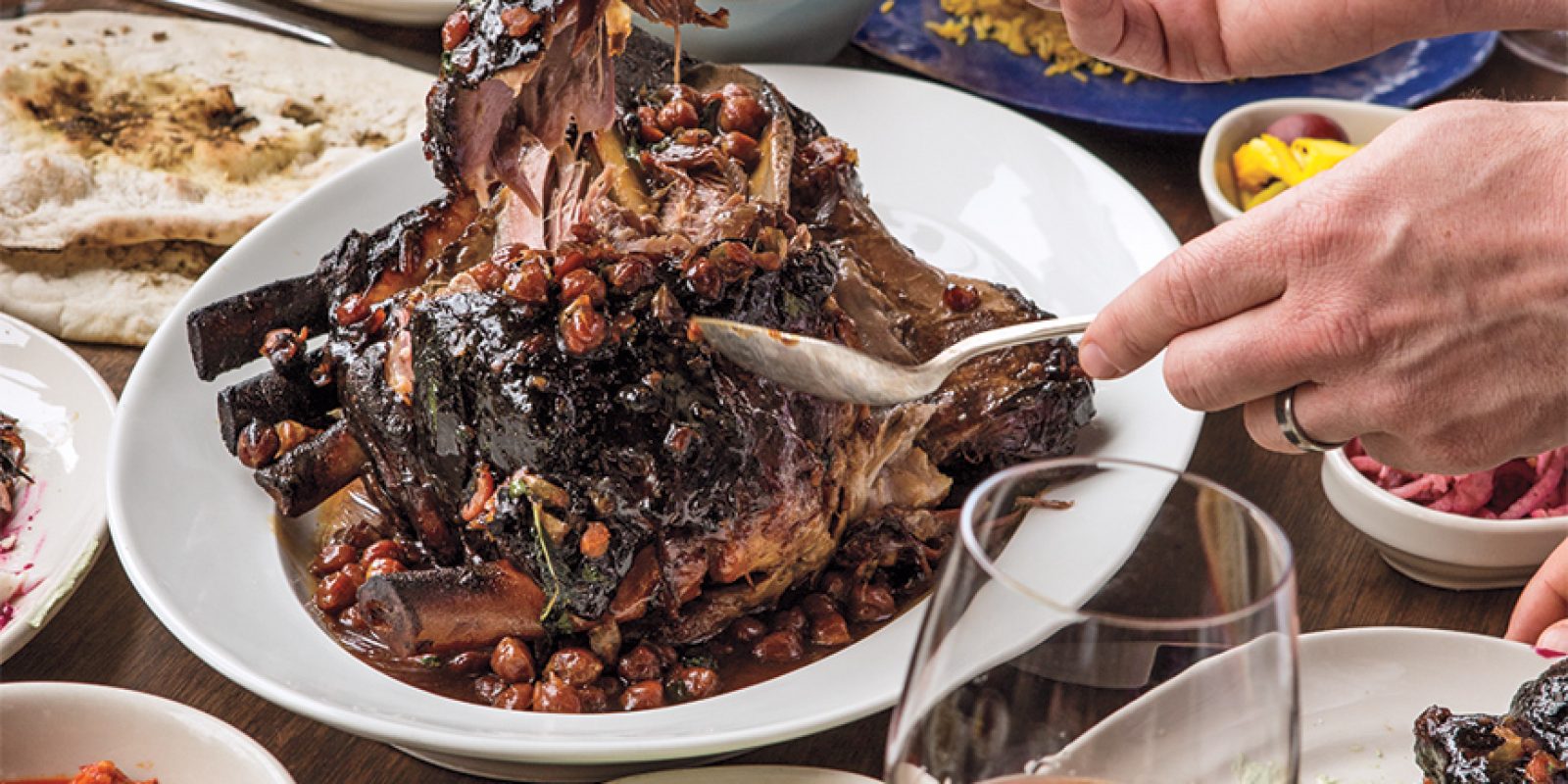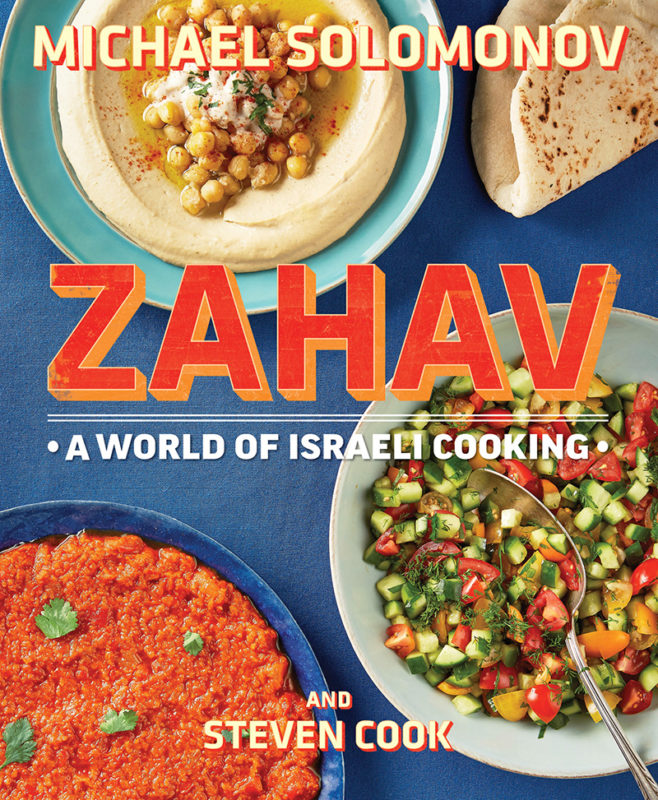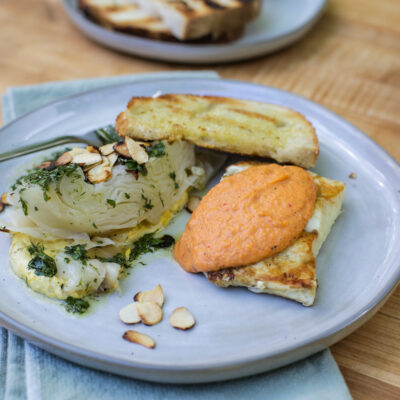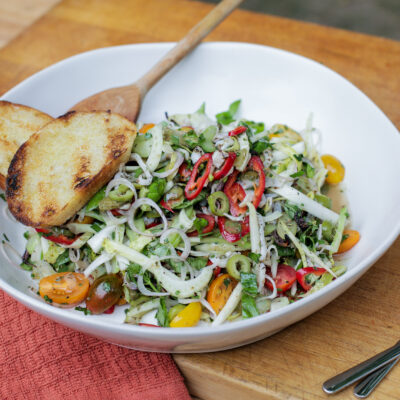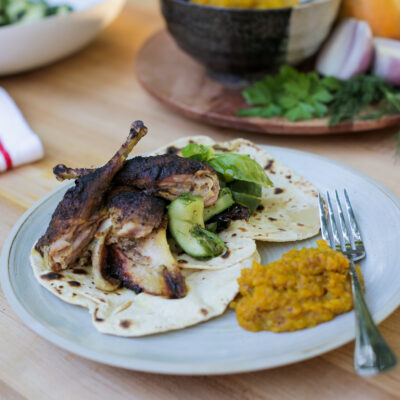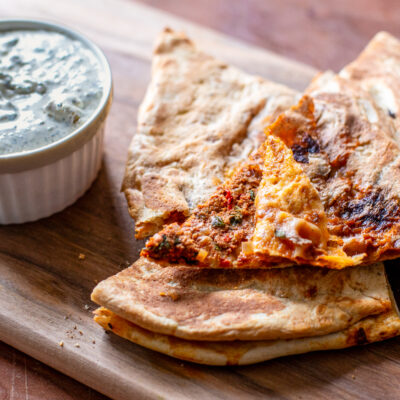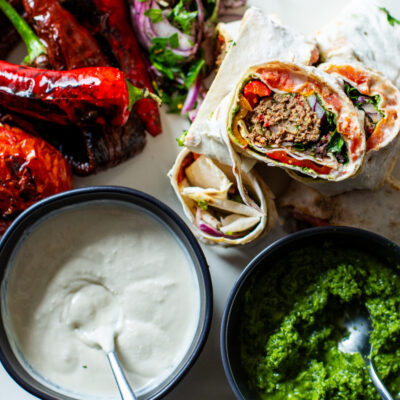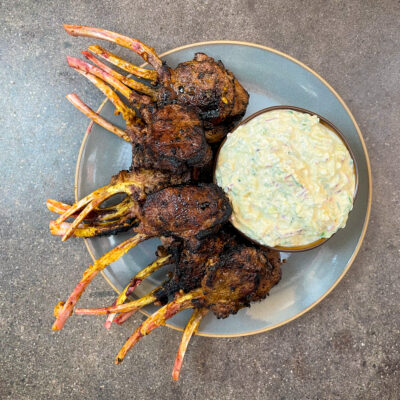The Zahav Lamb Shoulder
Next to our hummus, this is the dish that put Zahav on the map. We brine a whole lamb shoulder and smoke it over hardwood for a couple of hours. Then we braise it in pomegranate molasses until the meat is tender enough to eat with a spoon. Finally, the lamb shoulder is finished in a hot oven to crisp up the exterior. This dish is the best of all possible worlds—smoky and crispy, soft and tender, sweet and savory—and it’s a celebration all by itself. The use of pomegranate in this dish (and the crispy rice we serve with it) is very Persian, which is a cuisine with tradition so rich it always makes me think of palaces and royal banquets.
Chickpeas, the underrated star of this dish, recall the humble chamin, a traditional Sabbath stew that’s slow-baked overnight. During the long braise, the lamb bones create a natural stock that is absorbed by the chickpeas, creating the richest, creamiest peas you’ve ever tasted. I’ve even made hummus with these chickpeas—totally decadent!
Preparing the lamb shoulder is a two- or three-day process and thus requires some advance planning. We go through about sixty shoulders a week at the restaurant, and it’s still not enough. If you’ve ever been disappointed at Zahav, chances are it’s because we didn’t have a lamb shoulder for you. Now, you can make it for yourself.
We smoke our lamb shoulders at Percy Street Barbecue. If you have a smoker, feel free to smoke the lamb. Or just roast the shoulder as the recipe indicates.
The Zahav Lamb Shoulder
Ingredients
- Generous 1/4 cup Kosher salt
- 2 tablespoons sugar
- 1 teaspoon fennel seeds
- 1 teaspoon black peppercorns
- 1 teaspoon allspice berries
- 1 head garlic, halved crosswise
- 1 cup dried chickpeas
- 1 teaspoon baking soda
- 1 bone-in square-cut lamb shoulder (about 5 pounds)
- 1/2 cup pomegranate molasses
- Persian Rice, optional
Instructions
SERVINGS: 8
Combine the salt with the sugar, fennel seeds, peppercorns, allspice, garlic and about 2 quarts water in a large pot. Bring to a rapid boil, stirring to dissolve the salt. Remove from the heat and allow the brine to cool completely.
Combine the chickpeas with the baking soda in a large bowl and cover with water by several inches. Let soak overnight.
Put the lamb shoulder in a large (6- to 8-quart) container and pour the brine over the lamb. (Ideally, the lamb shoulder should be submerged, so weigh it with two plates. But if that’s impractical, cover the lamb with a clean cloth that’s saturated in the brine.) Refrigerate the lamb shoulder in the brine overnight or up to 48 hours.
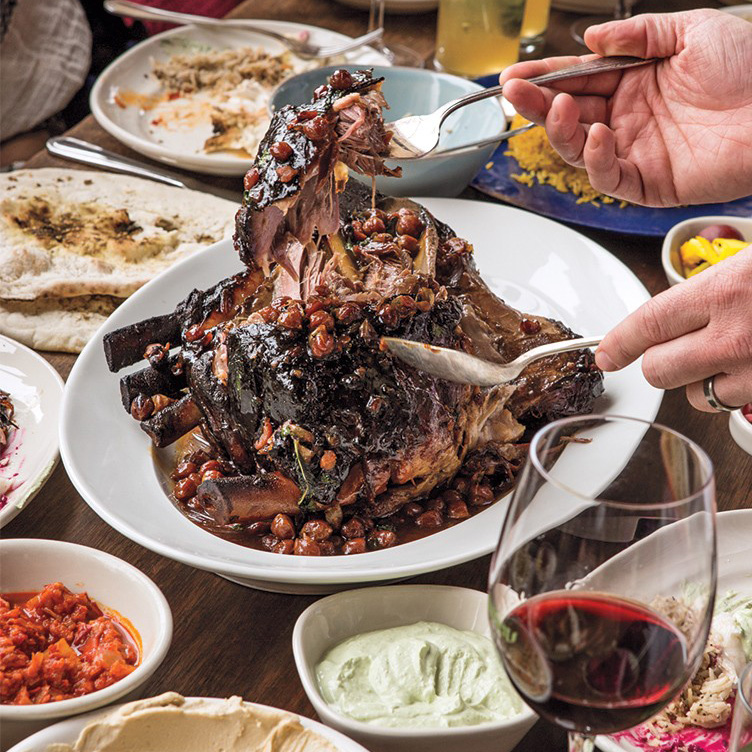
Preheat the oven to 475°F. Place a rack on a baking sheet. Drain the lamb and pat dry. Put the lamb on the rack and roast until well browned on the exterior, about 30 minutes. (Or sear the lamb over a medium-hot grill for 15 minutes until well browned on all sides and nicely charred in places.) Lower the oven to 300°F.
Transfer the lamb shoulder to a large roasting pan. Mix the pomegranate molasses with 8 cups water in a bowl and add to the pan. (The liquid should come about halfway up the shoulder; add water if needed.) Drain the chickpeas and add them to the liquid. Place a sheet of parchment paper over the lamb and cover the pan tightly with foil.
Braise in the oven until the lamb shreds easily with a fork and the chickpeas are tender, about 5 hours. Let the lamb cool in its braising liquid in the refrigerator overnight.
The next day, preheat the oven to 475 °F. Roast the lamb, uncovered, spooning the braising liquid over the lamb every 5 minutes, until the lamb is hot through and glazed with the liquid, about 30 minutes. Serve with crispy Persian rice if you like.
Pomegranate Molasses
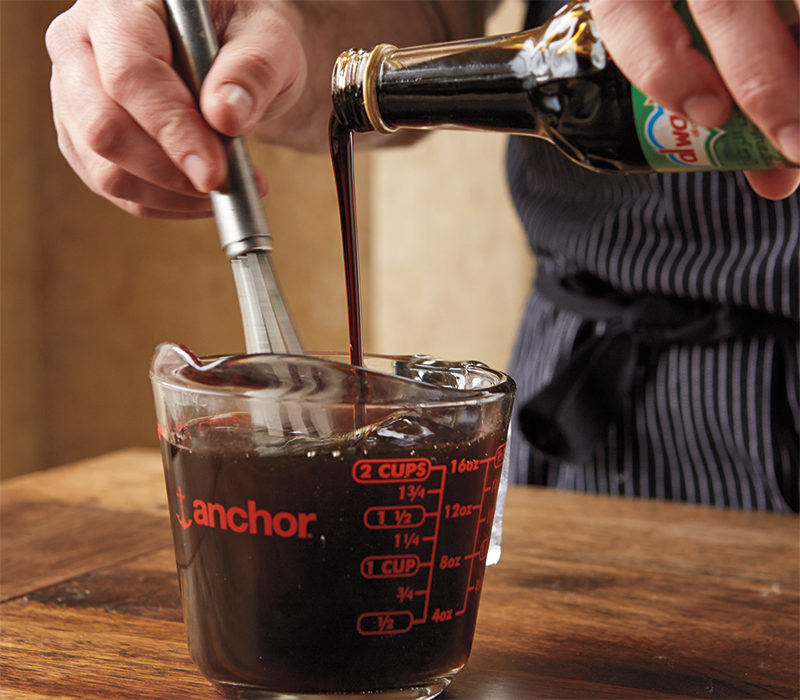
Pomegranate molasses is the juice of pomegranate seeds mixed with sugar and reduced to a thick syrup until it’s almost candy-like, at once very sweet and very sour from the astringency of pomegranates’ natural tannins. It is an important ingredient in Middle Eastern cooking, especially Persian cuisine. I add it to slow-braised meats, like the lamb shoulder on page 302, but it can be used straight from the bottle—as a sauce for ice cream, drizzled onto grilled chicken livers, or poured directly into your mouth.
Excerpted from Zahav: A World of Israeli Cooking, ©2015 by Michael Solomonov and Steven Cook. Reproduced by permission of Houghton Mifflin Harcourt. All rights reserved.

